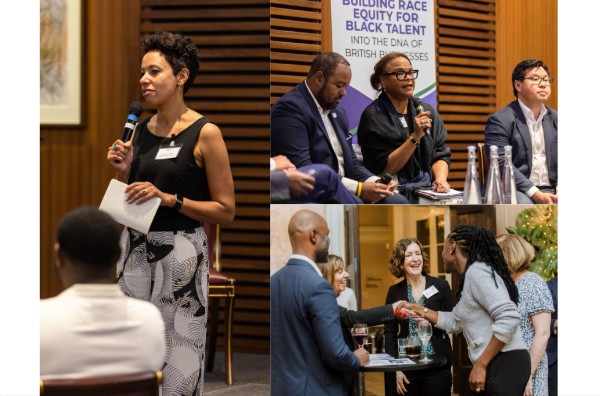
Originally founded as a week’s celebration in early 20th century America, Black History Month began in Britain in the mid-1980s. Firms and businesses now devote significant resources to programming events for the month in order to recognise their black talent and demonstrate their continuing commitment toward race equity. The programmes for the largest businesses are broad and impressive, and a lot of time and effort is required to make the month of October a successful demonstration of a commitment to black equity and the amplification of black voices.
Too often, however, there can be limited engagement beyond our black peers. And many – not least black professionals – are increasingly questioning whether Black History Month is a vehicle for change, or a distraction which for one month appears to demonstrate change but rarely offers answers.
Put bluntly, there is a risk that Black History Month has become a sacred cow, and that it will soon have little value. A corporation courts controversy if it asks openly whether Black History Month is still worthwhile. We, however, are able to ask that question directly, and we have done so.
In late 2023 and early 2024, we met with representatives from our Signatory organisations, including leaders of internal employee resource groups/networks, HR and DEI professionals and senior black talent, to explore the current value of Black History Month in supporting the experiences of black talent and the business strategy of each organisation. In particular, we wanted to understand what is done well and valued by staff, and what could be considered more thoughtfully. The discussions with Signatory representatives yielded a number of insights.
The resources allocated to programme planning for Black History Month and the structure of the programme vary significantly across our Signatory cohort, primarily reflecting the relative size of the organisations. The largest organisations convene very experienced teams spanning networks, marketing, communications, business and other relevant functions. In the smallest organisations, planning and delivery are inevitably dependent on one or two individuals. Overall, it appears that the expectations and efforts of black talent drive the delivery of Black History Month. Absent their involvement, organisations would feel significantly less able to engage with it.
Pressure points that cause difficulty for organisers are:
There are a variety of views about the purpose of Black History Month in business, reflecting differences between individuals and organisations in their consideration of history and race equity. Some want a focus on history (celebrating and educating); others on engaging as broadly as possible (with celebrity speakers); and others on driving change (exploring structural barriers and identifying interventions).
The following points emerged from feedback on the content of and attendance at Black History Month events:
A particular source of disappointment was the feeling that after Black History Month, everyone moved on. This led to frustration as to what celebrating Black History Month can achieve. Some noted that it has become a general ‘black celebration month’, but that it needs a greater focus on impact. Observations included the following:
Recommendations
It is clear from our study and frank discussions within our Signatory cohort that Black History Month provides an important opportunity in the year to recognise black colleagues and to educate, listen and reflect on their history and experiences. However, there is a risk that it may deliver the opposite of what it is intended to achieve, and that, unless carefully programmed and delivered, it may make staff cynical of its purpose and resentful of the time and effort devoted to it.
Written by





